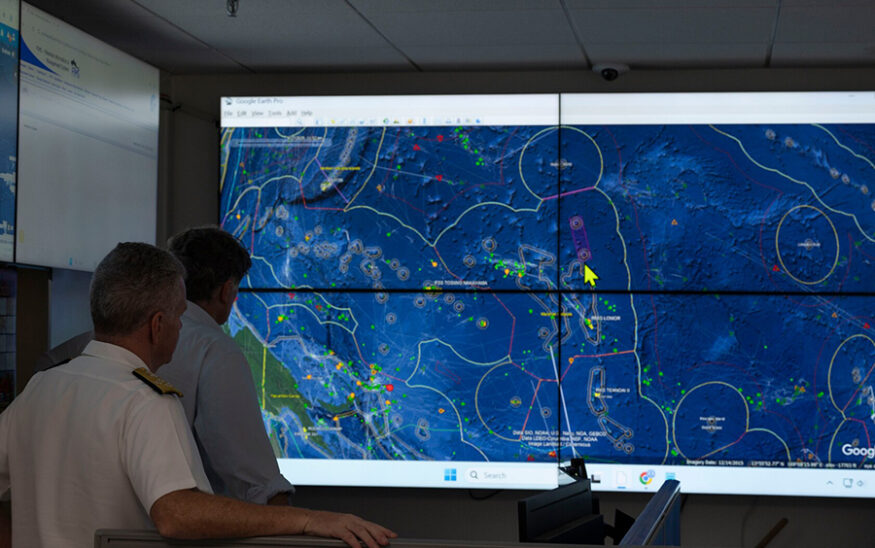SAIC wins $1.4B task order to speed warfighting tech development
Award comes as SAIC undergoes leadership changes
Beth JoJack //November 20, 2025//

Adm. Samuel J. Paparo, commander of U.S. Indo-Pacific Command visits the Marshall Islands Marine Resources Authority on September 18, 2025. Photo courtesy U.S. Indo-Pacific Command. U.S. Army photo by Staff Sgt. Angel Heraldez

Adm. Samuel J. Paparo, commander of U.S. Indo-Pacific Command visits the Marshall Islands Marine Resources Authority on September 18, 2025. Photo courtesy U.S. Indo-Pacific Command. U.S. Army photo by Staff Sgt. Angel Heraldez
SAIC wins $1.4B task order to speed warfighting tech development
Award comes as SAIC undergoes leadership changes
Beth JoJack //November 20, 2025//
The U.S. Department of Defense awarded Reston-based Fortune 500 government contractor Science Applications International Corp. (SAIC) a $1.4 billion Collaborative Operations for Battlespace Resilient Architecture (COBRA) task order to assist the federal government with fast-tracking warfighting technologies from concept to combat, the company announced Thursday.
The goal behind COBRA is to give military commands flexibility to modernize existing systems across the Combined Joint All-Domain Command and Control (CJADC2) ecosystem. CJADC2 is the federal agency’s approach “to developing both material and nonmaterial solutions to deliver information and decision advantage to commanders,” according to the DOD, also known as the Department of War.
“COBRA highlights the urgent need to deliver integrated, all-domain capabilities to our warfighters,” Vincent DiFronzo, executive vice president of Air Force and combatant commands business group, stated in the announcement. “SAIC will use our proven experience, speed and flexibility to fast-track warfighting technologies from concept to combat. With rigorous execution, we will rapidly deliver next-gen capabilities that accelerate decision superiority, strengthen readiness and enhance lethality.”
As an example of COBRA’s impact, SAIC said in a news release that the U.S. Indo-Pacific Command, which is responsible for defending and promoting U.S. interests in the Pacific and Asia, could use COBRA “to deliver technological innovation for mission requirements.”
SAIC’s work on the task order will include digital engineering and new system development for CJADC2, modeling and simulation, rapid prototyping, testing, data analytics, modernization in unmanned systems and cybersecurity.
The task order comes during a time of transition at SAIC. Following on the heels of former CEO Toni Townes-Whitley‘s departure in October, SAIC’s executive vice presidents of its Army sector and its Space and Intelligence group, Josh Jackson and David Ray, as well as Chief Innovation Officer Lauren Knausenberger, have left “to pursue other opportunities,” the company announced Nov. 13.
That day, the company also announced it is consolidating its five business groups into three. Effective Jan. 31, 2026, the current Army and Navy business groups will be combined as ANG, and the Air Force and Space and Intelligence (AFSI) business groups will be consolidated.
SAIC has about 24,000 employees and annual revenue of about $7.5 billion.
s

















